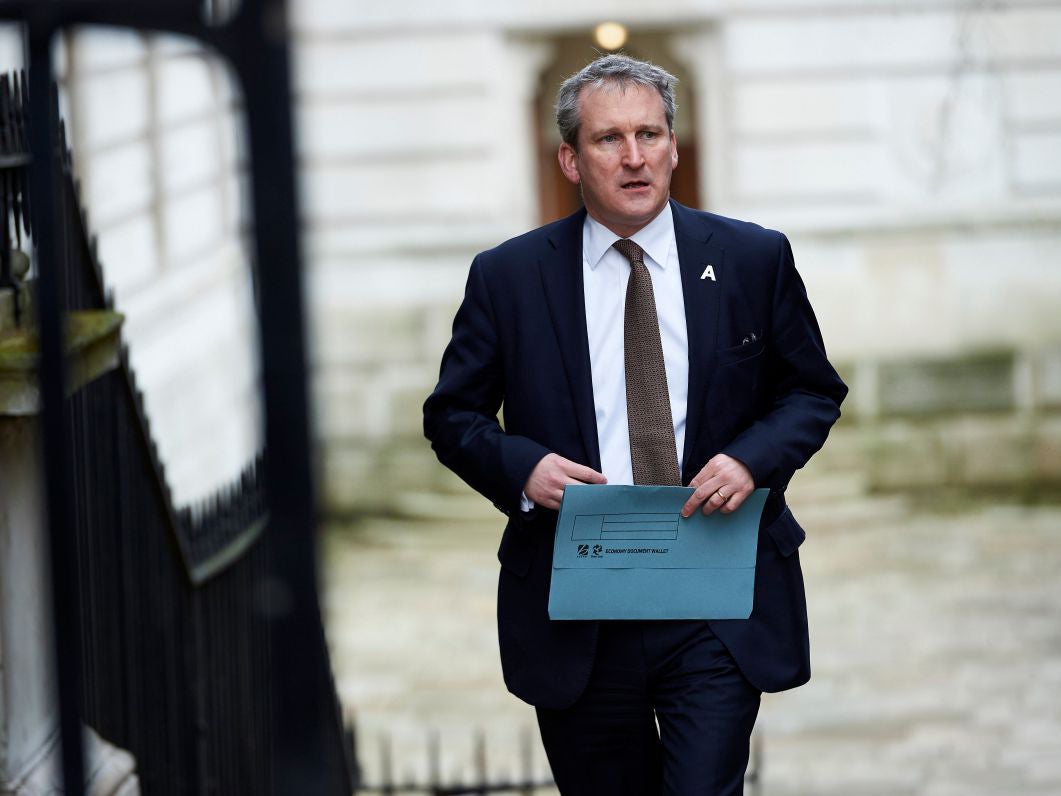The teachers’ unions are right to argue to ease the squeeze on funding for schools
After a week in which Theresa May gave a welcome signal that the government is preparing to accelerate the rate of increase in real spending on the NHS, the level of funding for schools is now bound to be considered

Your support helps us to tell the story
From reproductive rights to climate change to Big Tech, The Independent is on the ground when the story is developing. Whether it's investigating the financials of Elon Musk's pro-Trump PAC or producing our latest documentary, 'The A Word', which shines a light on the American women fighting for reproductive rights, we know how important it is to parse out the facts from the messaging.
At such a critical moment in US history, we need reporters on the ground. Your donation allows us to keep sending journalists to speak to both sides of the story.
The Independent is trusted by Americans across the entire political spectrum. And unlike many other quality news outlets, we choose not to lock Americans out of our reporting and analysis with paywalls. We believe quality journalism should be available to everyone, paid for by those who can afford it.
Your support makes all the difference.It is that time of year again. The evenings are getting lighter. The prime minister is using the word “resurrection” in the House of Commons. Children are finding out that you can eat too much chocolate. And the teachers’ unions are holding their annual conferences.
In some years, these gatherings generate headlines that do not necessarily add to the nation’s confidence that teachers are a professional group who can be trusted to bring out the best in the next generation. As is usual, this year’s conferences seem to talk too readily of strike action, but otherwise most of the debates are serious-minded and designed to put pressure on the government, rightly, to deliver more resources for schools.
This year brings added confusion for the lay public. The National Union of Teachers is holding its conference in Brighton, despite having merged last September with the Association of Teachers and Lecturers, which is going ahead with its separate conference in Liverpool next week. The merged union, the National Education Union, will meet as one next year. Meanwhile the National Association of Schoolmasters Union of Women Teachers, a 1976 merger which nowadays calls itself NASUWT The Teachers’ Union, is meeting in Birmingham.
As we report today, the talking points at this weekend’s conferences are the sexual harassment of teachers, the rights and wrongs of the hijab for primary school pupils, and schools asking parents to make up funding shortfalls.
These are important debates, but the big question for the nation as a whole is that of funding. After a week in which Theresa May gave a welcome signal that the government is preparing to accelerate the rate of increase in real spending on the NHS, the level of funding for schools is now bound to be considered.
Teachers need to be aware, of course, that the public is more willing to shoulder the burden of increased taxes (or national insurance) to pay for the health service. But equally the prime minister needs to be aware of the part played in the destruction of her parliamentary majority in last year’s election by the campaign on school funding that broke down official figures school by school.
As the public finances approach a normal state where borrowing is only for capital projects that can be expected to yield a return, the squeeze on spending on core public services can start to be eased. Sensibly, Damian Hinds, the new education secretary, has started his tenure by focusing on the problem of teachers’ workload.
He presumably wants to hold out against the unions’ demands for higher pay by dealing first with the non-pay pressures that are making teaching a less attractive profession. But those workload problems are real – ignore the predictable sneering about 3.30pm finishes and long holidays – and need to be dealt with anyway, so the unions should seize their chance.
But the teaching unions are also right to keep up the pressure on the government to reverse the cuts in per-pupil funding that have been made since 2015. So far, further cuts have been averted only by raiding other parts of the Department for Education’s budget. In this autumn’s budget the chancellor needs to put schools funding on a long-term, sustainable footing.
Join our commenting forum
Join thought-provoking conversations, follow other Independent readers and see their replies
Comments